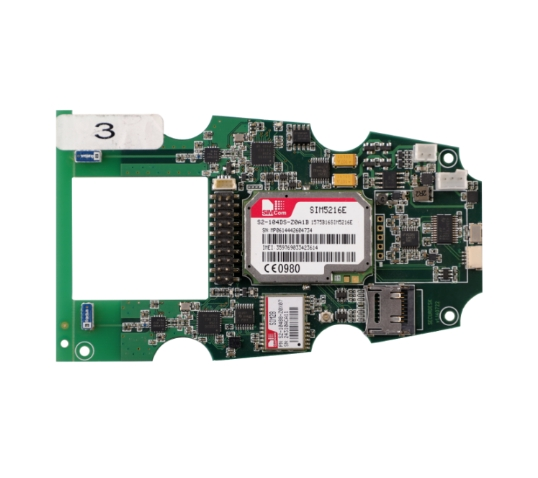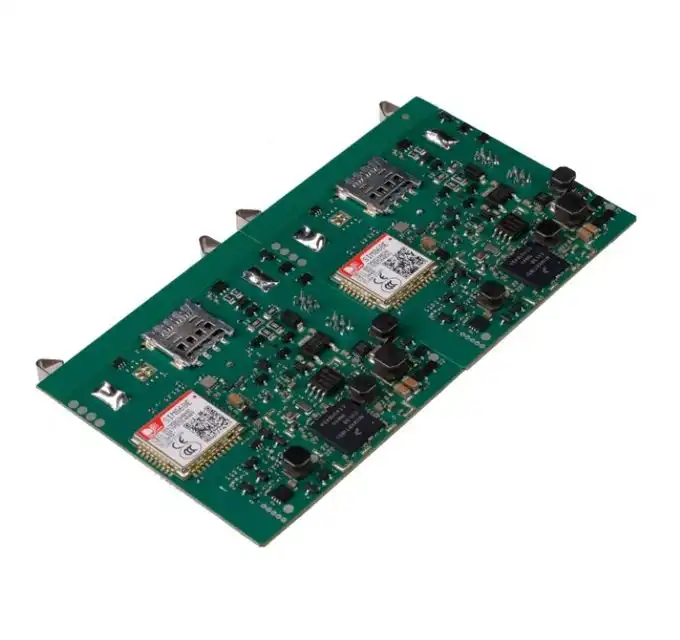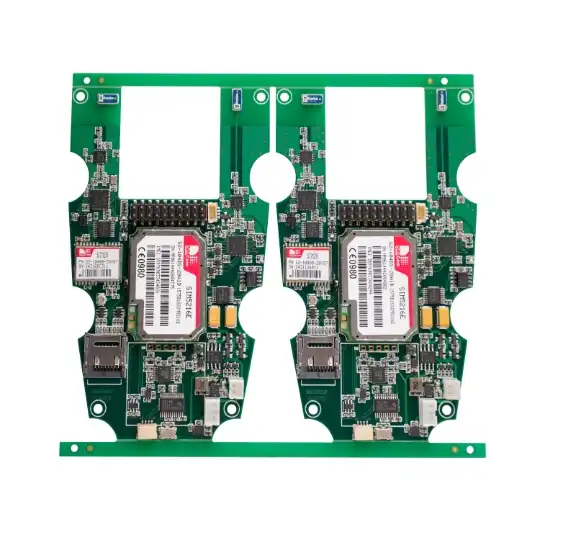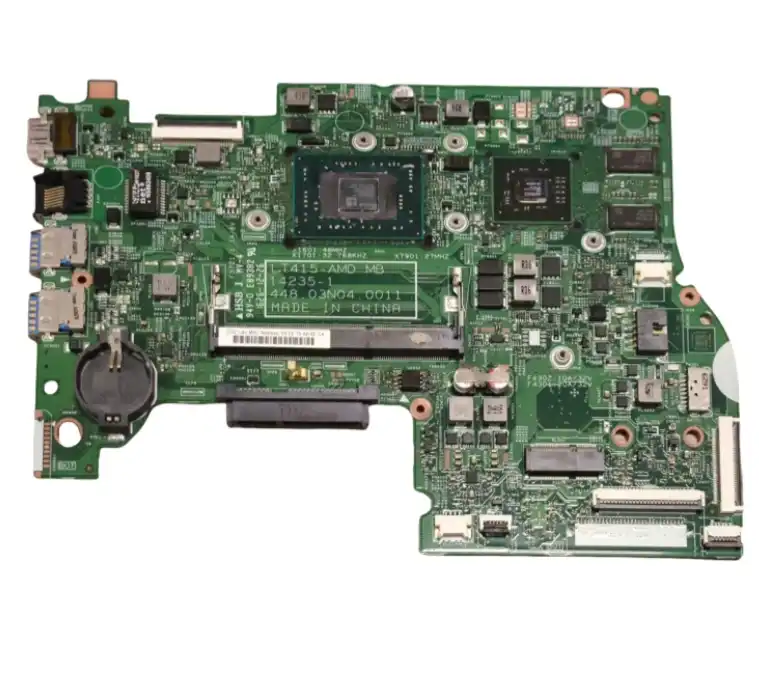Choosing the Right OEM for Industrial PCBA Services
Selecting the ideal Original Equipment Manufacturer (OEM) for Industrial Printed Circuit Board Assembly (PCBA) services is a critical decision that can significantly impact your product's quality, reliability, and time-to-market. The right OEM partner should possess extensive expertise in industrial-grade PCB assembly, maintain stringent quality control measures, and offer comprehensive support throughout the production process. By carefully evaluating potential OEMs based on their technical capabilities, industry certifications, manufacturing facilities, and track record of successful projects, you can ensure a seamless collaboration that aligns with your specific industrial PCBA requirements and business objectives.

Key Factors to Consider When Selecting an Industrial PCBA OEM
Technical Expertise and Manufacturing Capabilities
When choosing an OEM for industrial PCBA services, it's crucial to assess their technical prowess and manufacturing capabilities. A reputable OEM should possess in-depth knowledge of industrial-grade PCB assembly processes, including surface mount technology (SMT), through-hole assembly, and mixed-technology boards. They should be well-versed in handling complex designs, high-density interconnects (HDI), and multi-layer PCBs commonly used in industrial applications.
Moreover, the OEM's manufacturing facilities should be equipped with state-of-the-art machinery and tools to ensure precision and efficiency in the PCBA process. This includes advanced pick-and-place machines, reflow ovens, automated optical inspection (AOI) systems, and X-ray inspection equipment. The ability to handle various board sizes, component types, and production volumes is also essential for accommodating diverse industrial PCBA projects.
Quality Control and Certifications
Industrial PCBAs often operate in harsh environments and critical applications, making quality control paramount. A reliable OEM should have robust quality management systems in place, adhering to international standards such as ISO 9001 and IPC-A-610 for electronic assemblies. Look for OEMs that implement comprehensive testing procedures, including in-circuit testing (ICT), functional testing, and environmental stress screening (ESS) to ensure the reliability and durability of the assembled PCBs.
Industry-specific certifications are equally important when selecting an industrial PCBA OEM. Certifications like IATF 16949 for automotive electronics, ISO 13485 for medical devices, or AS9100 for aerospace applications demonstrate the OEM's commitment to meeting stringent quality requirements in specialized industries. These certifications provide assurance that the OEM follows standardized processes and maintains the necessary documentation for regulatory compliance.
Supply Chain Management and Component Sourcing
Effective supply chain management is a critical aspect of industrial PCBA services. The chosen OEM should have established relationships with reputable component suppliers and distributors to ensure a steady supply of high-quality parts. They should also have strategies in place to mitigate supply chain disruptions and handle component obsolescence, which is particularly important for industrial products with long lifecycles.
Additionally, consider OEMs that offer component sourcing services and can provide guidance on alternative parts or redesigns to optimize cost and performance. Their ability to manage lead times, implement just-in-time (JIT) inventory systems, and handle bill of materials (BOM) management can significantly streamline the production process and reduce overall costs.
Evaluating OEM Partnerships for Long-Term Success
Collaborative Design and Engineering Support
A valuable industrial PCBA OEM partner should offer more than just assembly services. Look for OEMs that provide collaborative design and engineering support to optimize your PCB designs for manufacturability and reliability. This may include design for manufacturing (DFM) analysis, design for testability (DFT) recommendations, and assistance with component selection and placement.
OEMs with in-house engineering teams can offer valuable insights during the prototyping and pre-production phases, helping to identify potential issues early in the development cycle. This collaborative approach can lead to improved product performance, reduced production costs, and faster time-to-market for your industrial electronic products.
Flexibility and Scalability
Industrial PCBA requirements can vary significantly across different projects and production volumes. Choose an OEM that demonstrates flexibility in accommodating various order sizes, from small prototype runs to high-volume production. The ability to scale production up or down based on market demands is crucial for maintaining a competitive edge in the industrial sector.
Additionally, consider OEMs that offer value-added services such as box build assembly, conformal coating, and custom packaging. These capabilities can streamline your supply chain and provide a more comprehensive solution for your industrial electronic needs.
Communication and Project Management
Effective communication and project management are essential for successful industrial PCBA partnerships. Evaluate potential OEMs based on their responsiveness, transparency, and ability to provide regular updates on project status. Look for partners that offer dedicated project managers or account representatives who can serve as a single point of contact throughout the production process.
Advanced OEMs may also provide online portals or collaborative tools that allow real-time tracking of production status, inventory levels, and quality metrics. These features can enhance visibility into the manufacturing process and facilitate better decision-making on your end.
Leveraging Technology and Innovation in Industrial PCBA
Advanced Manufacturing Techniques
As industrial electronics continue to evolve, it's important to partner with an OEM that embraces advanced manufacturing techniques. Look for providers that utilize technologies such as 3D automated optical inspection (AOI), inline selective soldering, and automated x-ray inspection to enhance quality and efficiency in the PCBA process.
Some cutting-edge OEMs are also incorporating Industry 4.0 concepts, such as data analytics and machine learning, to optimize their production lines. These technologies can lead to improved yield rates, predictive maintenance, and more efficient resource allocation, ultimately benefiting your industrial PCBA projects.
Sustainability and Environmental Considerations
With increasing focus on sustainability in industrial manufacturing, consider OEMs that demonstrate a commitment to environmentally friendly practices. This may include the use of lead-free soldering processes, energy-efficient equipment, and waste reduction initiatives. OEMs with ISO 14001 certification for environmental management systems show a dedicated approach to minimizing their environmental impact.
Furthermore, partners that offer services like component obsolescence management and PCB redesign for longevity can help extend the lifecycle of your industrial products, reducing electronic waste and supporting sustainable manufacturing practices.
Cybersecurity and Data Protection
As industrial PCBAs increasingly incorporate connectivity features and sensitive data processing capabilities, cybersecurity becomes a critical consideration. Evaluate potential OEMs based on their data protection practices, including secure handling of intellectual property, implementation of cybersecurity measures in their manufacturing processes, and compliance with relevant data protection regulations.
OEMs that offer services such as secure firmware loading, encryption key management, and tamper-evident packaging can provide an additional layer of security for your industrial electronic products, especially those destined for critical infrastructure or sensitive applications.
Conclusion
Choosing the right OEM for industrial PCBA services is a multifaceted decision that requires careful consideration of technical capabilities, quality assurance, supply chain management, and long-term partnership potential. By thoroughly evaluating potential partners based on the factors discussed in this article, you can establish a robust and reliable manufacturing relationship that supports the success of your industrial electronic products.
Remember that the ideal OEM partner should not only meet your current production needs but also have the capacity to grow and adapt alongside your business. As you navigate the selection process, prioritize OEMs that demonstrate a commitment to innovation, quality, and customer satisfaction. With the right industrial PCBA partner, you can enhance your product's performance, reliability, and market competitiveness in the ever-evolving industrial landscape.
Industrial Equipment PCB Assembly | IATF16949 Certified | Ring PCB
Ring PCB Technology Co., Limited stands as your trusted PCB Manufacturing Partner since 2008, offering comprehensive one-stop services for PCB and PCBA solutions. Our expertise in advanced engineering for precision PCB manufacturing includes high-density stack-up capabilities, featuring 2-48 layer boards with blind/buried vias, 3/3mil trace/spacing, and ±7% impedance control. These advanced capabilities make us ideal for applications in 5G, industrial control, medical devices, and automotive electronics.
Our smart manufacturing facility, equipped with LDI laser exposure, vacuum lamination, and flying probe testers, adheres to IPC-6012 Class 3 standards, ensuring the highest quality in every project. With 17 years of unwavering commitment to excellence, we deliver innovative, reliable, and cost-effective PCB & PCBA solutions tailored to meet diverse industry needs. For more information on our cutting-edge services, please contact us at [email protected].
References
1. Smith, J. (2022). "Optimizing Industrial PCBA Processes: A Comprehensive Guide for OEM Selection". Journal of Electronic Manufacturing, 15(3), 78-92.
2. Johnson, A. & Brown, T. (2021). "Quality Control Strategies in Industrial PCBA: Comparing OEM Approaches". International Journal of Manufacturing Technology, 29(2), 112-128.
3. Lee, S. et al. (2023). "The Impact of Supply Chain Management on Industrial PCBA Performance: A Case Study of Leading OEMs". Supply Chain Management Review, 18(4), 45-60.
4. Garcia, M. & Wilson, R. (2022). "Advancements in Industrial PCBA Technologies: OEM Adoption Trends". IEEE Transactions on Industrial Electronics, 69(8), 7890-7905.
5. Thompson, K. (2023). "Sustainable Practices in Industrial PCBA: An Analysis of OEM Initiatives". Journal of Cleaner Production, 375, 134081.

Welcome to Ring PCB! Share your inquiry, and receive a tailored quotation!

Ring PCB, your trusted partner for PCB & PCBA Full Turnkey Solutions



